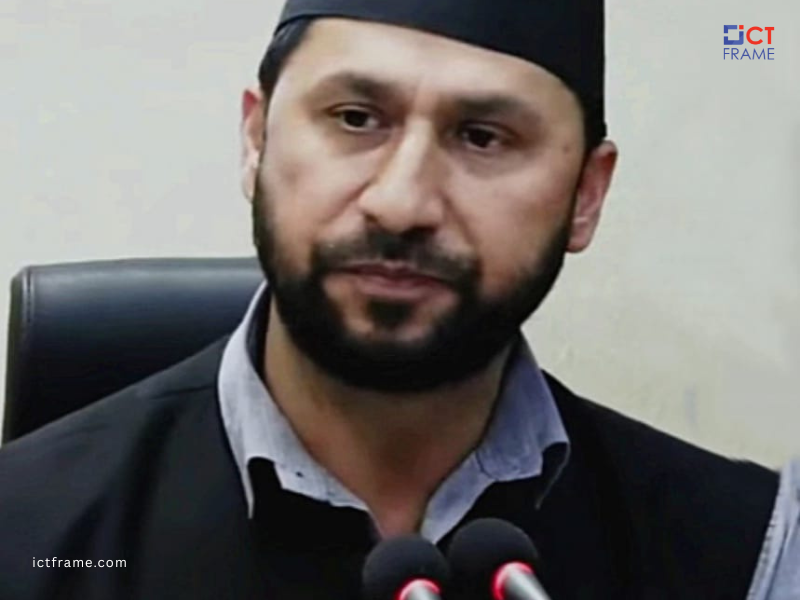Title: Rabi Lamichhane Declares RSP Not in Government Race, Advocates for ‘Citizen Supremacy’
10th September 2025, Kathmandu
In a significant move that could redefine the political landscape amid the ongoing national crisis, Rastriya Swatantra Party (RSP) President Rabi Lamichhane has announced that he and his party are not in the race to form or join the government.
Rabi Lamichhane Government
In a virtual address following a central committee meeting, he instead threw his support behind the youth-led Gen-Z movement, emphasizing that “democracy and citizen supremacy” must prevail.
Lamichhane’s statement comes at a crucial juncture for Nepal. The country has been rocked by widespread Gen-Z protests that have spiraled into violent confrontations, leading to the resignation of the elected Prime Minister and the Nepali Army stepping in to facilitate talks.
As political leaders and state institutions grapple for a solution, Lamichhane’s message has resonated with a public weary of traditional power politics.
Speaking to his supporters and the wider public, Lamichhane addressed the speculation surrounding his party’s political maneuvering.
“I am not in any race to form or join the government. I have not held any meetings with anyone anywhere,” he said. He further clarified, “There is no need for anyone to create controversy in my name.
I have said many times—I am not in any race. There’s no need to defame me to keep me out of it.”
His emphatic declaration aims to counter the narrative that the RSP, despite its anti-establishment stance, is just another political party vying for a share of power.
Lamichhane, whose party emerged as a significant force in the last general election, has consistently positioned the RSP as a political alternative focused on systemic change rather than personal gain. By distancing himself from the current power struggle, he reinforces this image.
“But this country must remain, democracy must remain, and citizen supremacy must remain. I will uphold this fearlessly for as long as I live,” he added, a powerful pledge that aligns directly with the core grievances of the Gen-Z protestors.
The concept of “citizen supremacy” is central to the youth movement’s demands, which reject the dominance of traditional political elites and call for a government that is truly accountable to the people.
In a move that could be seen as an attempt to bridge the gap between the formal political system and the grassroots movement, Lamichhane explicitly stated that the leadership of the government should be decided by the Gen-Z generation itself.
“This movement is Gen-Z’s; let Gen-Z decide the leadership,” he said. This statement is particularly impactful given the recent reports of Gen-Z activists like Raksha Bam rejecting dialogue with the RSP, viewing them as part of the old political order. Lamichhane’s message appears to be a direct response, an olive branch offered to the protestors on their own terms.
The RSP president also addressed questions about his personal legal challenges, stating that he is fighting his case “through legal means.”
This reference to his ongoing legal battles, which have previously forced him to step down from a government post, adds a layer of vulnerability to his otherwise firm stance.
By acknowledging his personal struggles, he presents himself as a relatable figure who is fighting his own battles for justice, a narrative that may resonate with the anti-corruption sentiment of the protestors.
“Neither I nor the RSP under my leadership seek any benefit from this. Loud and clear,” he concluded. This message of selflessness and commitment to the national cause stands in stark contrast to the widespread public perception of politicians as corrupt and self-serving.
The Gen-Z movement, fueled by frustration with the old guard, has been a wake-up call for the entire political establishment. The RSP, by making this public declaration, is attempting to position itself on the right side of history and align with the most powerful force for change in the country today: the youth.
The coming days will show whether this message of non-participation and support for “citizen supremacy” is enough to earn the trust of the Gen-Z movement and other stakeholders.
For now, Rabi Lamichhane has made his position clear, shifting the focus from who will rule to how the country should be ruled, and placing the burden of future leadership squarely on the shoulders of the generation that has demanded it.
For more: Rabi Lamichhane Government







